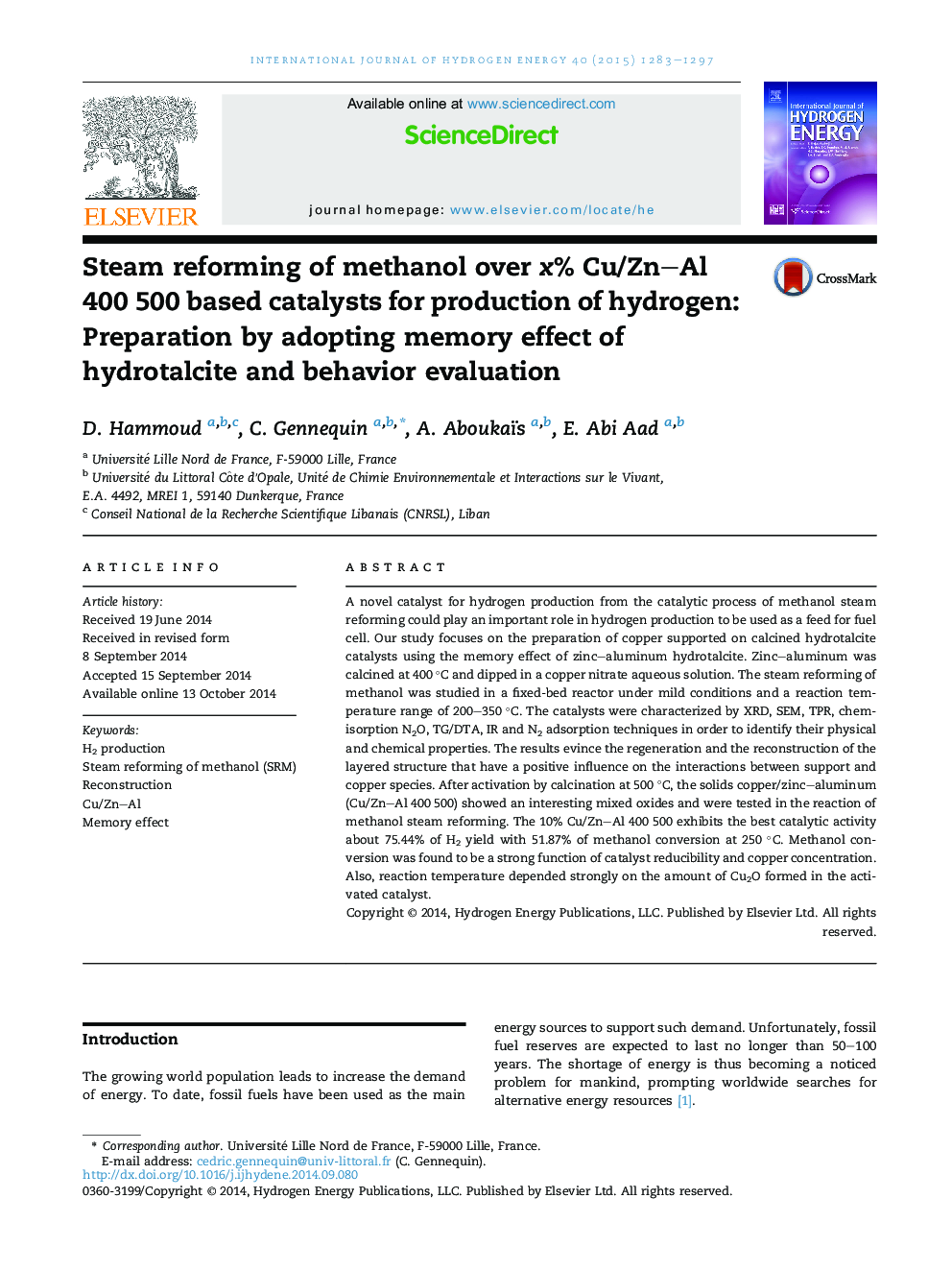| کد مقاله | کد نشریه | سال انتشار | مقاله انگلیسی | نسخه تمام متن |
|---|---|---|---|---|
| 1270225 | 1497471 | 2015 | 15 صفحه PDF | دانلود رایگان |

• The reconstruction phenomenon was different with the variation of copper load.
• The presence of Cu+, Cu0 with Cu2+ is required to obtain highly active catalysts.
• The catalytic activity depends on the nature of copper species and their reducibility.
• 10% Cu/Zn–Al 400 500 was the best catalyst tested in methanol steam reforming.
A novel catalyst for hydrogen production from the catalytic process of methanol steam reforming could play an important role in hydrogen production to be used as a feed for fuel cell. Our study focuses on the preparation of copper supported on calcined hydrotalcite catalysts using the memory effect of zinc–aluminum hydrotalcite. Zinc–aluminum was calcined at 400 °C and dipped in a copper nitrate aqueous solution. The steam reforming of methanol was studied in a fixed-bed reactor under mild conditions and a reaction temperature range of 200–350 °C. The catalysts were characterized by XRD, SEM, TPR, chemisorption N2O, TG/DTA, IR and N2 adsorption techniques in order to identify their physical and chemical properties. The results evince the regeneration and the reconstruction of the layered structure that have a positive influence on the interactions between support and copper species. After activation by calcination at 500 °C, the solids copper/zinc–aluminum (Cu/Zn–Al 400 500) showed an interesting mixed oxides and were tested in the reaction of methanol steam reforming. The 10% Cu/Zn–Al 400 500 exhibits the best catalytic activity about 75.44% of H2 yield with 51.87% of methanol conversion at 250 °C. Methanol conversion was found to be a strong function of catalyst reducibility and copper concentration. Also, reaction temperature depended strongly on the amount of Cu2O formed in the activated catalyst.
Journal: International Journal of Hydrogen Energy - Volume 40, Issue 2, 12 January 2015, Pages 1283–1297